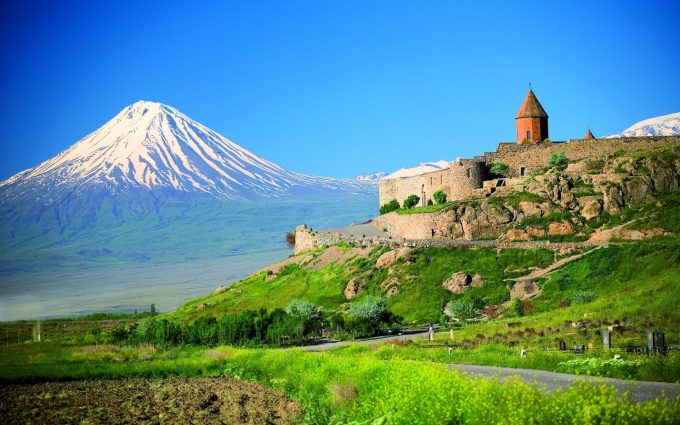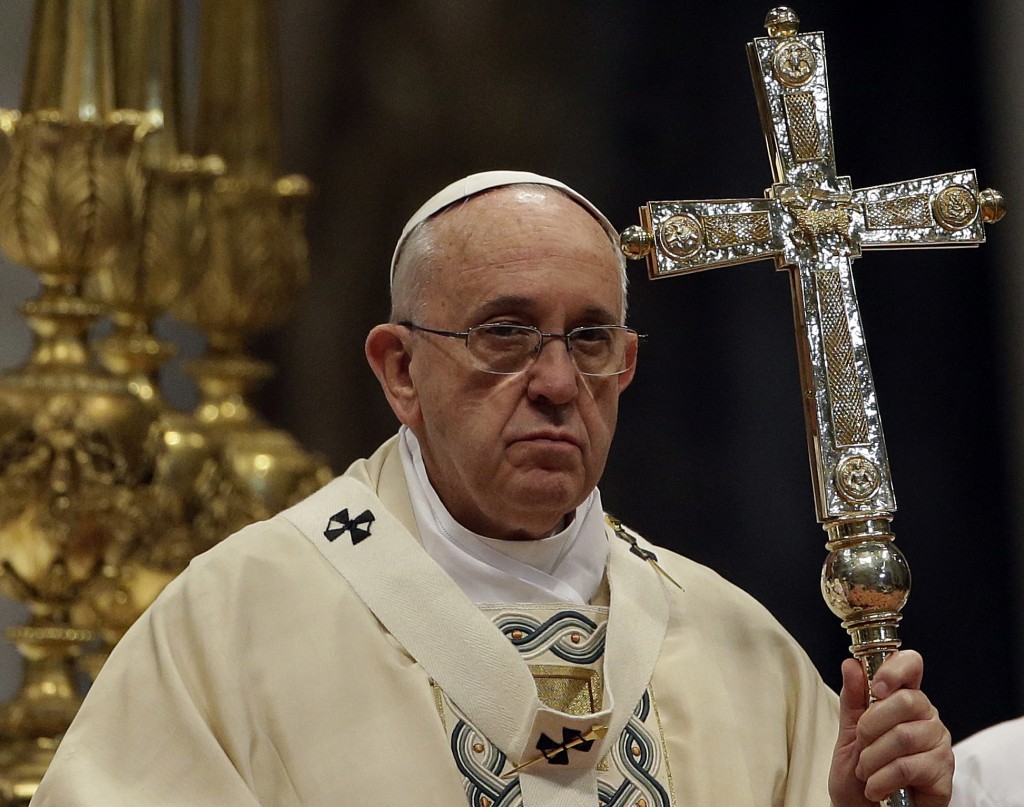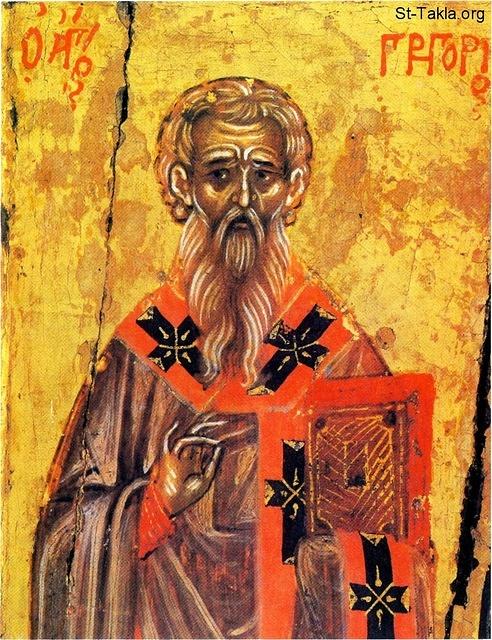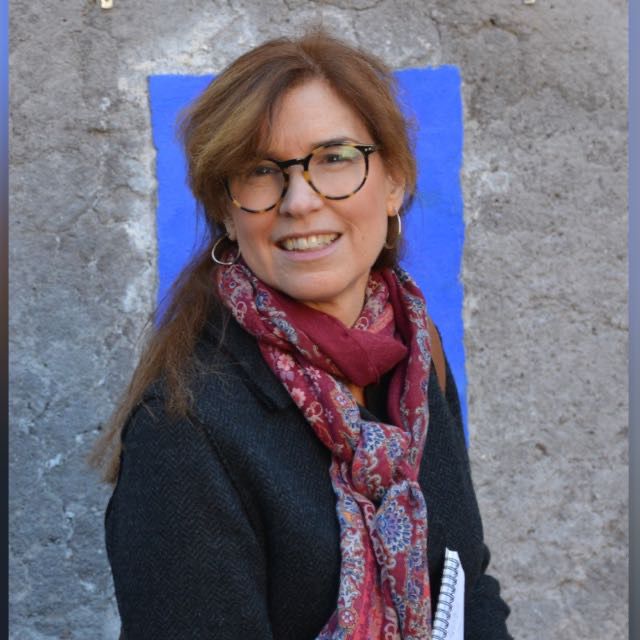
Credit: Zastavski
Pope Francis leaves Friday morning for a three-day trip to Armenia where he will visit a memorial for the victims of the Armenian Genocide and push for peace, symbolically releasing a dove near the Turkish border.
Given the Brexit vote, this trip may get less attention than some of his other trips but, as a good indication of the level of interest in Pope Francis, there are still over 70 journalists from all over the world traveling on the Papal plane. I will be on board as television producer with a full AP team – cameraman Pietro De Cristofaro, Vatican Correspondent Nicole Winfield and Andrew Medichini as photographer.
Armenia is a small country with a population of nearly 3 million people, only 10 percent of them are Catholics and 93 percent are “apostolic” (Oriental Orthodox) Christians. Armenia borders Turkey (the border remains closed), Georgia, Iran, and Azerbaijan, all predominantly Muslim countries with the exception of Georgia.
The 1915-1922 genocide of 1.5 Armenians by the Ottoman Turks will be an important element on this trip. Pope Francis will visit the genocide memorial called Tzitzernakaberd. There he will pray in honor of the victims of the genocide and meet descendants of some of the Armenian orphans who were taken in by Pope Benedict XV and given shelter at the pope’s summer residence Castel Gandolfo.
As usual, the use of the world “genocide” creates problems with the Turkish government who refuse to use that word for the mass killing of Armenians. But Pope Francis made clear his views on this a year ago in April 2015 when he repeatedly used the word “genocide” in a Mass in St. Peter’s Basilica to mark the 100th anniversary of the genocide. (See Blog Post: “The Weight of a Word”) Following that Mass, Turkey pulled out its Ambassador to the Vatican but he returned 10 months later.

Armenia is considered the first country to make Christianity its state religion back in 301 A.D. and has a rich biblical history. It is where Noah is said to have released the dove from his ark. The ark came to rest on the slopes of Mt. Ararat, visible in Armenia but actually in Turkey. Interestingly, Vatican documents provided for journalists on the trip noted that “Noah would have cultivated his vineyards on the slopes of the mountain (Ararat) and gotten drunk drinking the distilled spirits.”
I found the biblical verse they are referring to in the New American Standard Bible. Here it is:“Then Noah began farming and planted a vineyard. He drank of the wine and became drunk, and uncovered himself inside his tent.”
I don’t believe the Pope will be doing any such thing, but he will go visit the area on Sunday when he makes a trip to the monastery at Khor Virap, 30 kilometers south of the capital of Yerevan and at the foot of Mt. Ararat. According to legend, the pagan King Triridates III imprisoned the Christian Gregory in a pit where he was left for 12 years. He survived thanks to Christian women who brought him food. Eventually Gregory was let out and the king converted to Christianity and the whole country became Christian. Saint Gregory the Illuminator is the Patron Saint of Armenia.

The monastery is built on the site of the of the pit, which in Armenian means Khor Virap. From the windows of the monastery, Pope Francis, together with the leader of the Armenian Apostolic Church known as Catholicos Karekin II, will release doves from a lookout point that faces Mt. Ararat and the Turkish border.
Armenia left the Soviet Union in 1990 and became an independent state. Turkey was one of the first nations to recognize the Armenian Republic, however, things soured when fighting broke out between Armenia and Azerbaijan in a disputed area between the two countries known as Nagorno-Karabakh in 1994. The area is populated mostly by Armenians but became part of Azerbaijan following the break-up of the Soviet Union. As a result of the fighting between the Armenians and the Azeris, Turkey closed its border with Armenia in 1993. Last April fighting broke out again and about 75 people were killed.
Originally the Pope planned to visit Armenia together with Georgia and Azerbaijan, but due to political, diplomatic and organizational reasons the trips had to be separated and the Pope now plans to visit Georgia and Azerbaijan in September.
The Pope is likely to talk about the fighting in the Nagorno-Karabakh region during the trip.
This is Pope Francis’ 14th trip as Pope. John Paul II visited Armenia in 2001.

. . going to be very interesting to see what crazed response will come from the ‘Sultan’!
I would love to hear your thoughts on “the Sultan” — but wondering if you even feel completely free to blog about politics in Turkey at this time.
Hi,
Enjoyed reading this because of all the background info you included. I had read a story about the trip, but it lacked the Biblical info and some of the details about what the Pope will do. I look forward to your report about the trip and maybe this will be another time that I find your story in a Chicago paper.
A presto,
Joan
Thanks Joan — You won’t be seeing any print story of mine in the Chicago paper because Nicole Winfield will be writing the AP stories on this trip, but any video you see of the Pope in the plane or in Armenia might be produced — edited, scripted etc by me. And I will do one of my behind-the-scenes posts when I get back.
An interesting trip, and the timing is interesting, too. FYI, the biblical story about Noah is the Jewish version of a Babylonian tale very popular in the region several thousand years ago. Flood myths appear around the world in folklore. In the earlier version, Noah is rewarded by the gods, who make him a god, too. He rises to become a star in the heavens. Jews disliked all that theology, humans do not become God, only God is God, humans are sinful, etc. Interestingly, the sin of Noah is not becoming drunk. His sin is, when drunk, undressing and lying around naked, and his sons see him, which is a terrible thing to Jews, men seeing another man naked and sons seeing their fathers naked. Noah ends up just another guy, but he really had a moment there, never to be forgotten. Most Noah story books leave that ending out, and it is just as well they do, since it is not originally part of the tale. You may have heard of the Gilgamesh epic, which is the Babylonian version.
As for the genocide, OF COURSE it was a genocide, and motivated by a desire for religious and cultural purity. The modern secular Turkish state has been the Turks own reaction to what they did then, as I understand it. The US should declare this a genocide, but does not because we have a military base in Turkey and want to stay there. And Turkey is beset with problems, ISIS, Syria, Libya, which makes it not a good time to load on something more. A conundrum.
Nancy — thank you for the interesting explanation of the whole Noah story– I had never heard any of it before. I think I was stuck on the children’s story version and the song we sang at camp “and the animals they came on by twosies, twosies – there were elephants and kangaroosies, roosies…” Also, I agree with you on the genocide word and it may be a conundrum for the US, but glad the Pope is free to call a spade a spade.
Hi Trish,
Thanks—that was a nicely done summary of some of Armenia’s troubled history. I look forward to reading your take on the country and the people.
Best to you. How fortunate you get to experience these trips. And fortunate for your readers as well.
Kathryn
Thank you Kathryn — Although the trip has been overshadowed by the Brexit story, there is so much interesting history and important current events related to Armenia to talk about. The Pope has made his position very clear on the whole question of the use of the word “genocide”. He uses it without hesitation and has left no doubts on the matter. Today we are expecting him to talk about Nagorno-Karabakh and the conflict in that area.